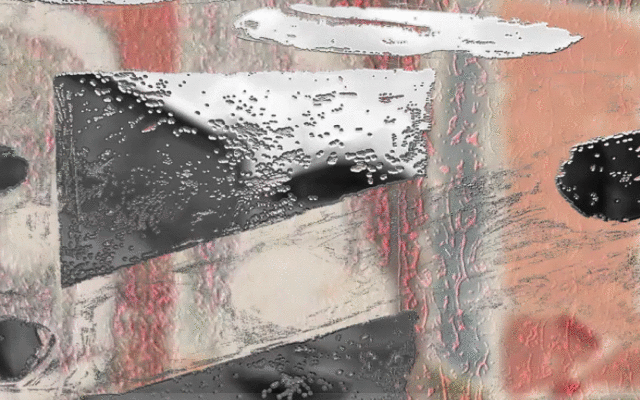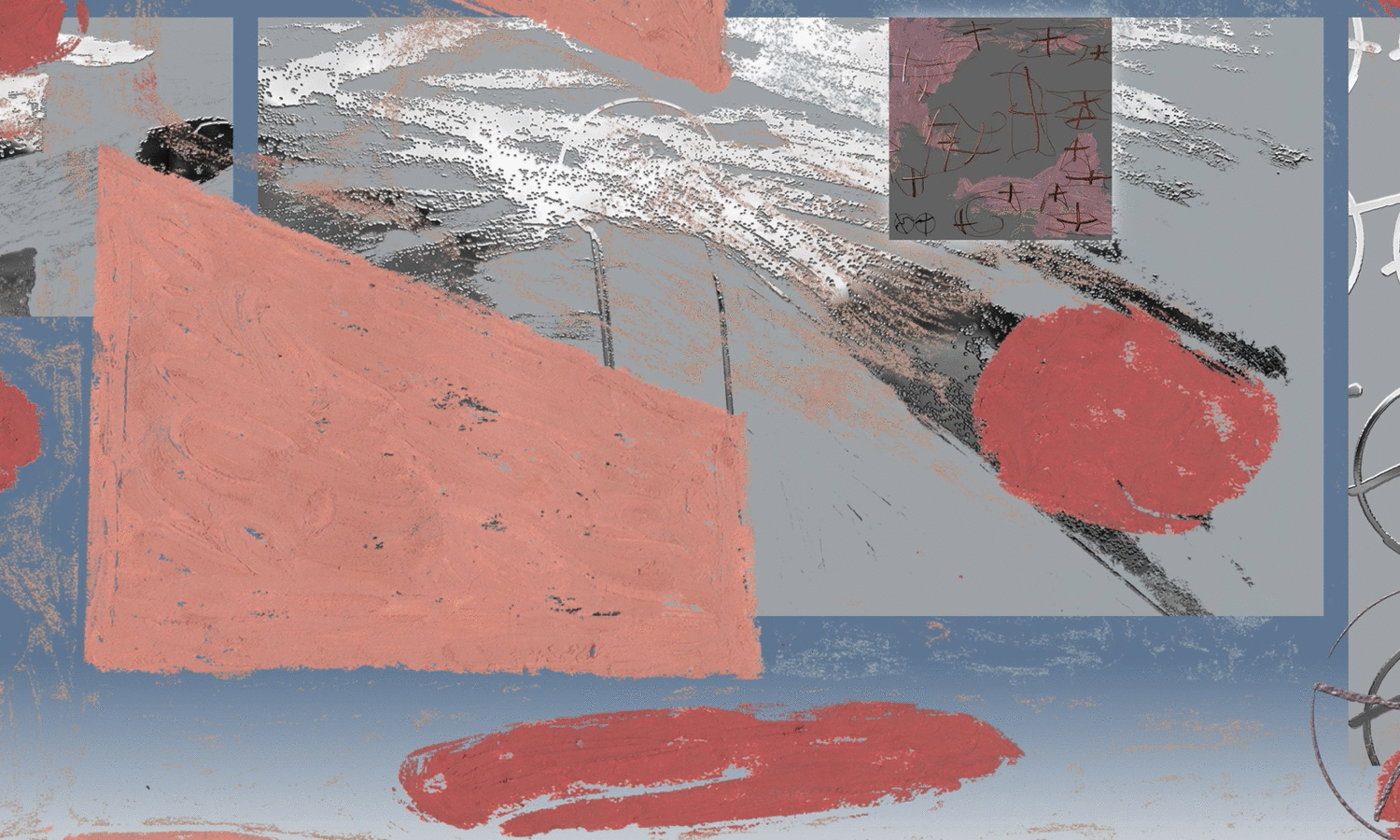I spent most of 2020 writing tracks — chatting with Michal Turle
Interview by Novembre, in the context of Michal Turtle 'Reinterpreted', by Planisphere
Unexpected external forces this last year have thrown another spanner into the works, making the future of what we do even more unpredictable.
— Michael Turtle, 2021

Novembre: Do you collect things?
Michal Turtle: I have a modest vinyl collection with a few rarities from the 60s onwards. I also have some 78s and a wind-up machine to play them on. I have all my old samples in various formats going back to the early 80s. Besides what I need for my work, I have various strange collections: matchboxes, old cameras, old movies. I am a serial archivist, with all the photos I've ever taken since 1977, digitized and catalogued.
Do you use that material for specific research at all? Or is it more about knowing that it is there – somewhere accessible.
I tend to have a somewhat unhealthy fascination with my own past.
The vinyl I have, besides any musical merit that may be there, takes me back to past moments. I am fascinated with why I remember certain things clearly, and why music or smells need to trigger other (sometimes random) memories. The shellac (78) collection includes a few records my father played on, so that's an incredible link to history there.
Above: End of an Era (Felicia Atkinson Fennel and Moon Mix)
What are the ideal conditions for you to work?
Don't need much. I have a room downstairs to work in, but I am just as comfortable in my living room, which is more or less the same environment and concept since the early 80s - just different technology. Basically, a laptop, microphone, e-drums, plugins and all the (real) percussion instruments I can (literally) shake a stick at. I can remember times in the 80s, when I lived in Camden, where my stuff was accessible from the bed, so I could work for a couple of hours even before getting up.
I can imagine that the work being conceived from bed might end up being quite different than work done sitting, or standing. How do you think about the impact of your physical situation or state on your artistic output?
I can't really say that there would be any difference where something was written. I think it is just important to get into your zone, and be ready, and know when to stop if something isn't working. For me the creation process should not necessarily be difficult.
Above: Our Man In (D.K. Remix)
Do you listen to a lot of sounds? Or/and composed music?
I like discovering what people are doing now, listening a lot more since being signed to Music From Memory, but I also tend to go back again and again to some of the few favorites that have travelled with me over the years.
What are recent works or authors you’re currently into right now?
I have (naturally enough) been listening and getting into much of the Music From Memory catalogue, as well as some of the upcoming artists on LOOD. Other than that it tends to be random stuff that I come across, sometimes via my kids.
Some downtempo and loungy stuff is always good.
I am also attracted to the bizarreness and busyness of dubstep, clowncore, the jazz/fusion direction of JD Beck and Domi, and the sheer pocket grooves of Vulfpeck. Jazz and fusion were big influences when I was growing up. I can possibly relate these genres to stuff I have done in the past, though it may not be so obvious listening to the Michal Turtle reissues!
Any thoughts on listening to loud music?
Used to be a thing, especially at gigs, where it feels most natural. As I haven't been to a gig in over a year, things feel a bit different. When I am mixing (at home) the headphones need to be loud to make sense. I am lucky enough to have had almost no (clinically measured) hearing loss over the years.
Above: Phantoms of Dreamland (LH Mix)
Discuss your relationship to voice, and your own voice.
I often do backing vocals for clients, but have avoided singing traditional lead vocals. However I feel I really know how to sing, I just don't have a voice! I have worked and hopefully helped many singers over the years. In the 2000s and early 10s I worked on 8 albums with Jessica Knoll (now Hardegger).
What about poetry, and words in general?
I am not a really a reader of poetry. But I am somehow proud of stuff that I've written myself, for example the poem Lucianne recites at the end of Agallo on the Light of Other Days release. I did a lot of text stuff with Lucianne in the 80s, mostly reading randomly from books or newspapers, or recipe books as in Phil 5.
How did it fade away? Are you a reader today and if so, what’s on your desk currently?
There were a lot of books I read growing up, sci-fi, and for some reason, many of the books of Thomas Hardy. I also read a lot of Flann O'brien, Salman Rushdie, and many biographies of musicians and movie stars. Right now I am reading Dreams by Philip Ditchfield, a multimedia novel with music and video, for which I did the arrangements!
It takes me a long time to read, but my plan is to always be reading a book.
Do you compose scores?
I was lucky enough to have studied orchestration at music college, and that has helped me enormously in work that I have done for other artists. I have recorded arrangements and compositions with a live symphony orchestra, which means I had to write out all the arrangements for live musicians to play. Of course, I am also writing for plugins, which is now called “synthestration” Here's my daughter's school project film for which I did the music.
How do these look visually?
I used to work for a music publisher in the 90s and have many examples at home.
Above: Ball of Fire (object blue Version)
What is your relationship to performing live? Discuss.
As much as I love to record stuff, there is nothing quite like a live gig. I like the idea of not even knowing myself what the audience is going to get. I work usually with HOVE (light of other days), and we make set lists, but anything can randomly take off in very unexpected ways at any time. I hope at some point to be doing more live shows with HOVE as well as other artists, but you know...
How do you think about it right now?
I am always (literally) dreaming about doing gigs in various surreal scenarios, you know how dreams are.
So I guess there is a deep desire to do more live gigs.
What are your thoughts on others manipulating your work?
I am constantly amazed and honored that such talented people are interested enough to create something using my dusty old tracks. It's always good to feel another person's consciousness doing its thing on something that originated from me so long ago in some half-remembered past, and that it's still somehow relevant to so many people today.
Do you feel like it’s part of your responsibility to collaborate with others, and give access to your practice in this other way? And is responsibility not the notion here?
Responsibility is perhaps not the right word. I would do it anyway. When I'm working with (mostly) younger artists, I don't feel somehow on another level. We are all here to learn and experience, and that can come from anywhere. I like to work with people who take you to places you wouldn't normally go to alone.
As an artist have the chance to shape the reality, we all live in, through your work. How much do you understand of that you do?
Any artist can only do what they do, and that's it. If it influences people or changes the world then so be it. I don't feel art needs to change the world. If another person gets what you are trying to do then that's nice. Importantly, anyone can create art, if it is ignored, forgotten or never noticed or even presented to anyone, that doesn't make the art less (or more) relevant.
Describe how the pandemic caused you to rethink your relationship to releasing work.
I spent most of 2020 writing tracks. I worked on about 5 tracks a month, and they are all what I would call “finished”.
At some point I hope to do something with them, even if it just means putting it all up on soundcloud, calling it: “what I did in 2020” or something like that.
Visit the hybrid Visualiser of 'Michal Turtle Reinterpreted' presented by PLANISPHERE in collaboration with Jonathan Castro Alejos, Chris Harnan, and Sander Sturing. It is the result of a creative research on how the perception of music has altered through the progression of digitalisation.
Purchase the record 'Michal Turtle Interpreted' or acquire up to three of Chris Harnan’s prints via PLANISPHERE EDITORIAL on Bandcamp or Bigcartel.


